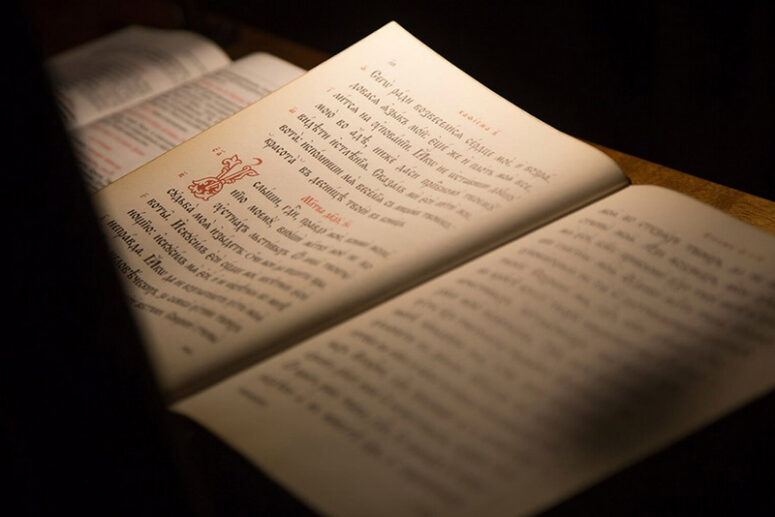
The Psalter is the only Old Testament book, fully included in the rubrics of the Orthodox Church. It is older than the Lord’s prayer and many other elements of today’s worship. Ancient monastics read the Psalter from memory, and some monasteries only accepted candidates who knew it by heart. In tsarist Russia, this book was the most widespread in society. Many children were taught to read with its help. Why is it important to read the Psalter at home and how can a modern Christian do it with maximum benefit?
Authorship and Contents of the Psalter
The title of the book comes from an ancient stringed musical instrument that was similar to the modern harp. It is known that being a great musician and singer, King David gave thanks to God in poetic form. The texts of his psalms were written down and compiled in the Psalter. But although the book is called “The Psalter of the Prophet and King David,” only 78 of its 151 psalms belong to his pen. Among the rest of the Psalms, one belongs to Moses, 11 to the sons of Korah, 12 to Asaph from the tribe of Levi, and two more are attributed to Heman and Ethan, contemporaries of David. According to the interpreters of the Holy Scriptures, all these psalms were compiled by the high priest Ezra (ca. 5th century BC). For ease of reading, they are divided into 20 kathismas, each consisting of three parts, ending with a “Glory be…” Kathismas do not necessarily contain the same number of psalms (for example, the 18th consists of 15, and the 17th only has one). In the theological sense, all psalms can be divided into laudatory and thanksgiving, instructive, pleading and messianic.
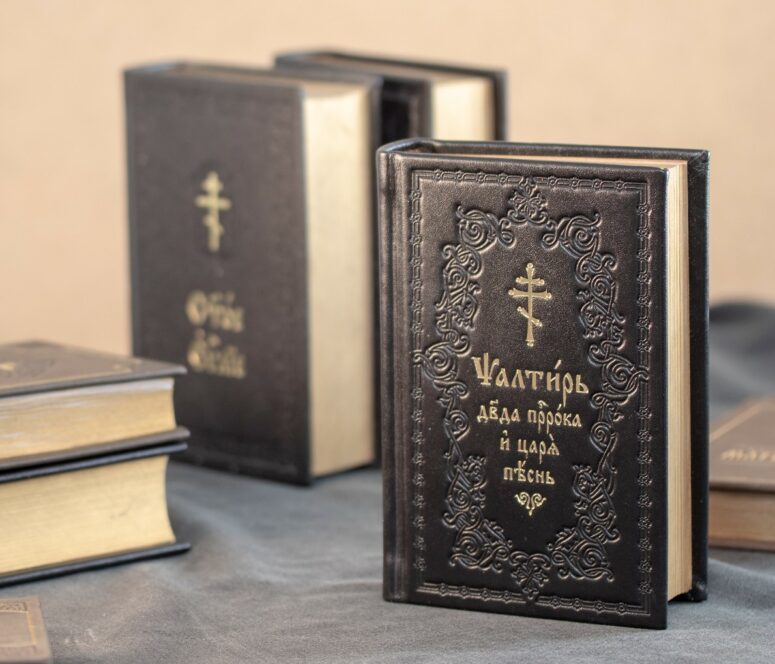
Why Is Reading the Psalter Beneficial for a Christian?
The Psalter is an instructive book rich in spiritual food. It contains prayers that teach piety, strengthen faith, and help Christians to adhere to God in any circumstances. The Psalter contains many prophecies about the Saviour (for example, in Psalm 21 David depicted the Passion of Christ so accurately as if he were writing while standing at the Cross). Sacred hymns are consistently used in church services, as they are an excellent example of prayer, repentance and glorification of God. Reading the Psalter systematically in private prayer, gives Christians a deeper understanding of church services. In addition, we know from the Old Testament that David’s psalms have an exorcising effect against evil spirits. When Saul was punished for his sins with demon possession, David expelled an unclean spirit from him by singing psalms.
Holy fathers instruct us to read this Holy Book. “You will see for yourself the great power of these God-inspired words, scorching and driving away mental enemies like a flame. A prayer put in the words of psalms is always stronger than one expressed in our own words” (St Ambrose of Optina).
One contemporary elder was once told by his novice, struggling to read the Psalter, “Father, I don’t understand anything there!” The elder answered, “Do not worry and continue reading it. You may not understand, but the demons do and they tremble”.
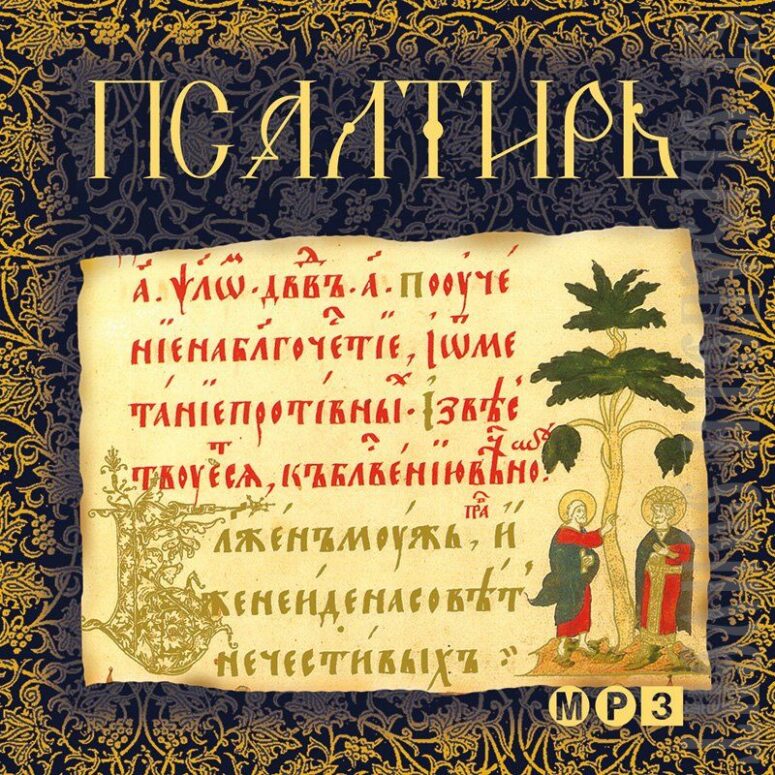
A Few Tips on Reading the Psalter in Private Prayer
Following a few simple rules will help a Christian to read this Holy Book at home with maximum spiritual benefit.
Reading Techniques Pious Christians usually combine reading the Psalter (as well as other prayers) with lighting a candle or an oil lamp. A tongue of flame directed upwards helps us tune into a conversation with God. Venerable Seraphim of Sarov recommended reading the Psalms aloud or in a whisper, so that not only the mind, but also the ears may attend to its words. In case of doubt about the meaning of the words, one can always turn to one of the interpretations of the psalms. It is customary to read the Psalter monotonously, in a somewhat singsong voice, but not emotionally. It is permissible to read the Psalms while sitting, standing up only for the prayers and “Glory be”. It is, however, more convenient to stand while reading aloud, and in case of a large book size, you can consider using an analogion.
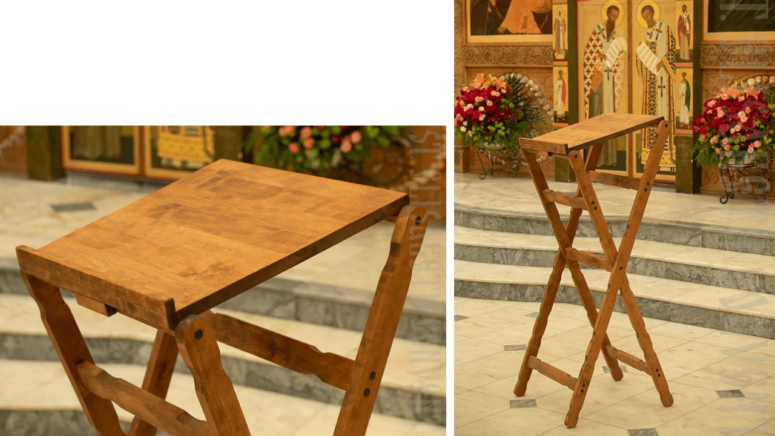
Reading Sequence There is no mandatory order of reading the Psalter at home. One can read kathismas sequentially, randomly or selectively, choosing the psalms by preference or occasion. If several psalms are included in the morning or evening prayer rule, then the special prayers before them are not needed.
Prayers Before and After Reading the Psalter. Such prayers are considered obligatory when reading not a single psalm but one or more kathismas. Usually these prayers are included in the contents of the book, so we will not be covering them in this article.
Remembrance of the Living and the Dead When reading a kathisma, it is appropriate to pray for the health and repose of our loved ones. Our living relatives and friends are usually commemorated after the first “Glory be”, and the names of the departed are mentioned after the second. In this case, the third “Glory be” is followed by the troparia and prayers written in the following kathisma.
The most important thing about reading the Psalter is consistency. Reading it daily saturates the soul with the sweetness of communion with God and protects it from enemy attacks. The only time when it is not customary to read kathismas is the period from Thursday of the Holy Week to St Thomas Sunday (Antipascha), when they are not included in church services.
Praying the Psalter for the Newly Departed
According to a pious Orthodox tradition of commemorating the dead, the Psalter is read in full in a certain order after a person’s death and before his funeral and burial. The reading of the Psalter begins after the Office at the Parting of the Soul from the Body. As a rule, the reading is done by the pious relatives and friends, gathered at the bedside of the deceased, or with the help of experienced parishioners. The words of the psalms drive away evil spirits from the soul of the newly deceased, strengthening and consoling it on the difficult path to the Judgement of God. Psalter is also read for 40 days after a Christian’s death.



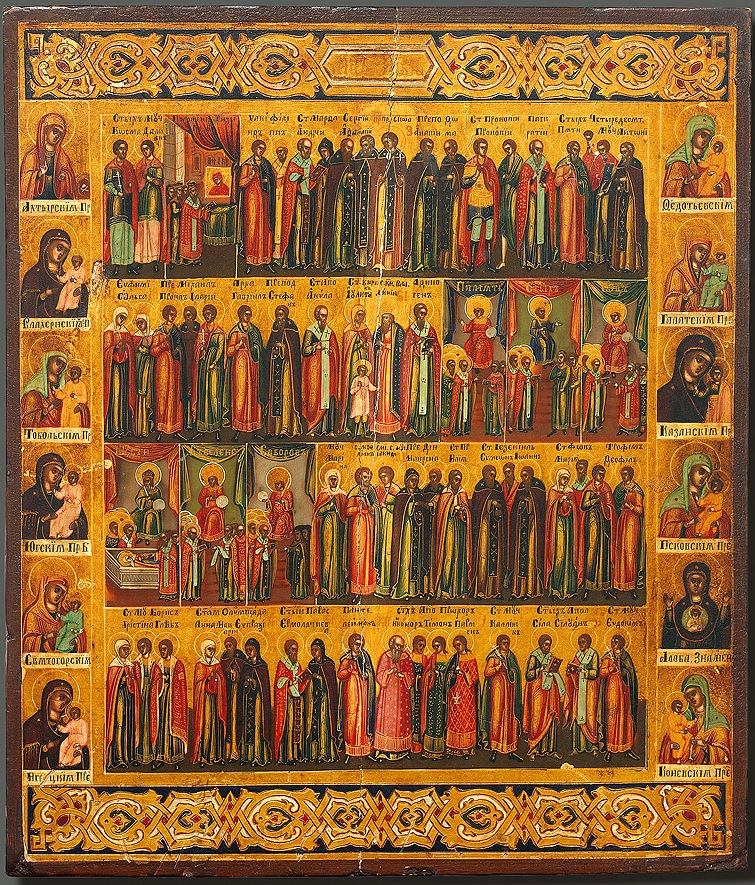
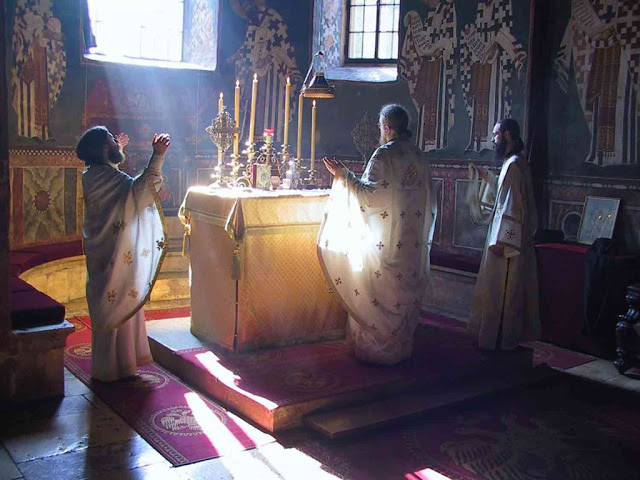
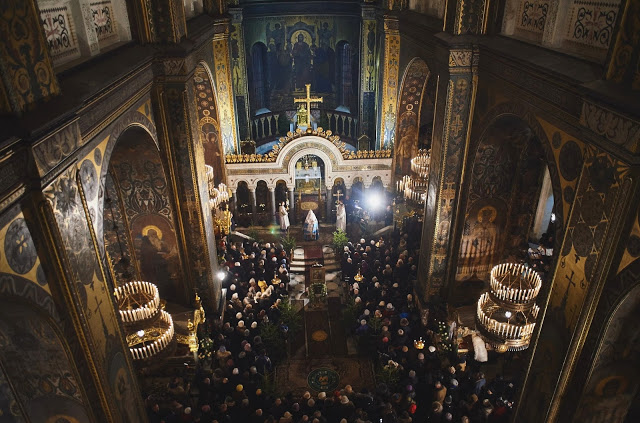
As a new, very elderly Orthodox, this article has been very helpful as I have just purchased a Psalter. It does have some instruction how to read the Psalter but your article has given this beginner a good overall and encouraging guide before I start. Thank you.
Alexandra Picton, we are glad that our article was useful to you! We wish you success in this good cause.
Thank you for the explanation of the Psalter. I had doubts about what I was doing, but now I don’t! A million thanks!!!
Thank you for a very informative article.
When reading the Psalter for 40 days after a loved one’s death, what are we to say before each reading? Is there a prayer indicating we are reading for a recently deceased?
You are so welcome!
Under each article of the kathisma at “Glory” is read the prayer: “Remember, O Lord our God…”, placed at the end of the office after the soul exits (see at the end of the Augmented Psalters and Small Psalters), remembering where follows the name of the departed, but after the end of the kathisma – “Trisagion”, “Our Father”, troparia and the prayer placed in every kathisma (see them in the Psalter after kathismas), beginning behind that new kathisma with the words: “O come let us worship” and so forth.
Thanks so much.
A close family member passed away a few days ago, and I am trying to do what’s best for him.
I don’t have much experience with the Psalter, so just to clarify .. at the end of each section of Kathisma, where it says Glory. Both now. Alleluia (I have read that that is short form, you are supposed to read the entire prayer .. Glory to the Father .. ) ..
You are saying at the end of that prayer, I should say “”Remember, O Lord, the soul of Thy departed servant (name)?
I’m so sorry, I am a little confused because I am not very experienced with this or the terminology ..
Thank you so much for any help you can offer me
Carin
May his memory be eternal!
Please, read this writing, there are more clarifications and details on reading Psalter over the deceased https://orthodoxdenver.org/files/Bulgakov/1201.pdf . We hope that will help.
God bless you!